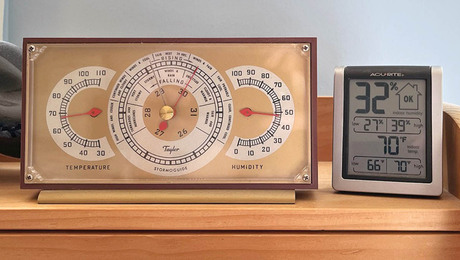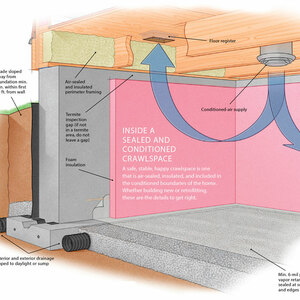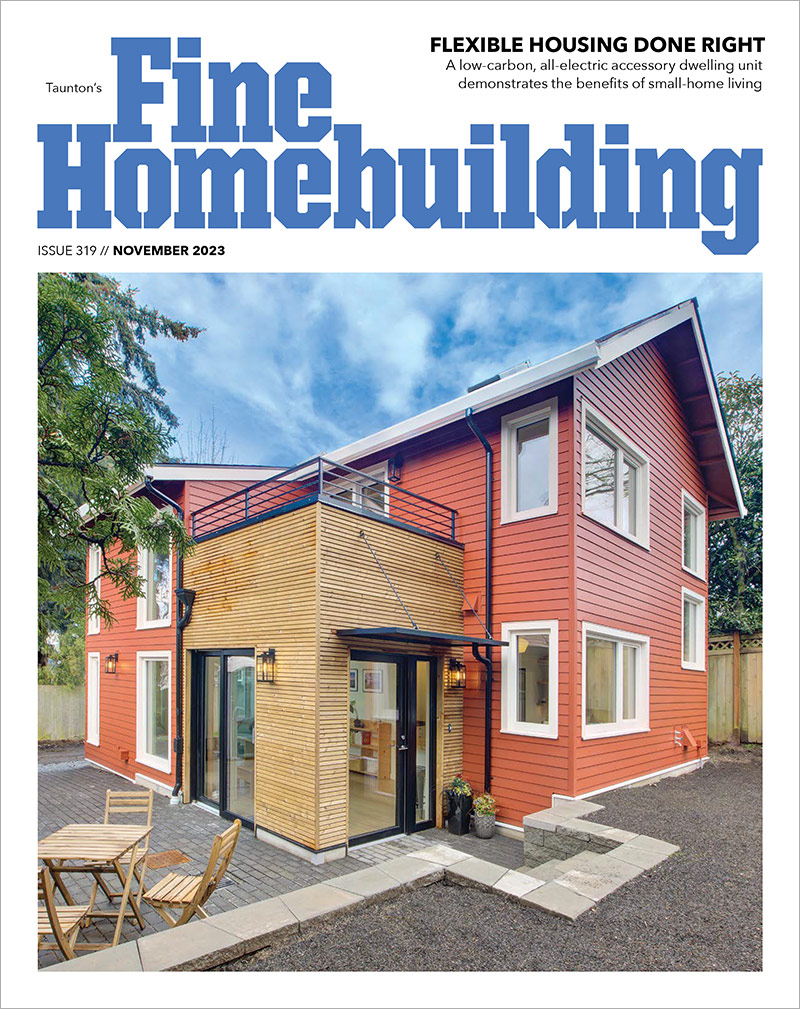I am finishing my basement and I want flooring that will have minimal off-gassing and be maximum eco-friendly. I am willing to pay up to $15/sq ft. (which is a lot more than a typical installation). The basement is bone dry. Typical carpet and vinyl seem to flunk my criteria miserably. Hardwood seems like it would be a hassle to install reliably on the slab and would not be soft enough for rough-housing. Pergo-type floors seem to contain plenty of glue, which tends to off-gas.
I have been considering real Linoleum, natural fiber carpet with no treatments, rubber, and cork. I don’t like the “aroma” of the rubber flooring. I think the Linoleum will be a bit cold and hard, though I could put throw rugs on top. I am not sure if cork is rugged enough for a basement or whether it is too finicky about humidity. I’d prefer for this to be a DIY project (like the rest of the basement has been), but I’ve never installed carpet and I’d prefer not to get into gluing down tiles.
Any advice?


















Replies
You might reconsider hardwood in the form of engineered flooring. It can be glued to the slab or it can be installed on a subfloor over the slab (this can make your basement warmer in winter).
A combination of bamboo and wool area rugs is both eco-friendly, can be very low on the off-gassing if you buy the right brand of bamboo, is easy to maintain and keep clean, and provides flexibility for space usage (some spaces need soft of rugs and others don't). Because bamboo is engineered, it goes well below grade, and Moso bamboo is harder than oak (not as hard as maple). Some brands of bamboo use formaldehyde glue, so you need to do your research carefully if you go this route. We have a formaldehyde free bamboo in our basement and love it. Wool rugs are a renewable resource, do not offgas (unless you count a sheep smell if you get it soaking wet), and feel great under bare feet.
Marmoleum or bamboo.
There's a product called "FLOR" that I've been interested in recently. Check them out at http://www.interfaceflor.com or http://www.dwr.com (search for FLOR).
Here's some info about them:
Composed of changeable 19.5 square-inch tiles, InterfaceFLOR comes in a modular format for people who like to play with design. FLORâ„¢ modular tiles are affordable, washable, recyclable and waste-reducing. Choose individual, easy-to-install tiles to create your look of choice and pay a fraction of the cost of traditional wall-to-wall carpeting and area rugs. FLORâ„¢ exemplifies InterfaceFLORâ„¢'s company commitment to design, quality and environmental sustainability.
Ray Anderson, founder of Interface, Inc., was selected in 2001 by the National Academy of Sciences to receive the prestigious George and Cynthia Mitchell International Prize for Sustainable Development, the first corporate CEO to be so honored. His book, Mid-Course Correction (Chelsea Green, 1998) describes his and Interface's transformation to environmental responsibility.
They also offer recycling and disposition options for all of their products to avoid landfilling.
How about cork? Very soft to walk on and my understanding is that it is a sustainable product.
Cork is high on our list. I'm just not sure how it stacks up against Linoleum and wool carpet as far as:
- when it gets wet, how much is it damaged and how well does it recover (the basement is more likely to see some kind of flooding)?
- how well does it take wear-and-tear (the basement will take more of that then most rooms)?
- how much maintenance effort does it take? [I'd rather not have to re-apply a top-coat every year]
Knoke, to verify the properties of cork, I'd check with the manufacturers. However, it is sealed. I was concerned about using it in the kitchen because of the normal wear and tear that room receives. Additionally, we have a dog who is the world's messiest drinker. The floor needs constant mopping around her bowl. They said because the cork is sealed, it shouldn't be an issue, but would need to be mopped up as I'm doing now. Furniture will dent cork. Where the fridge and stove sit, the floor will be depressed (but whose going to notice until the floor is redone?). I didn't get the impression that it need a yearly re-sealing, though I may be wrong about that. We chose not to go for cork only because the one we really liked was too "busy" (the cork pattern too intense) in conjunction with our countertops (granite). We were both disappointed. It was so-o-o comfortable to stand on!
I've loved the bamboo floors that I've seen, the cork ones too.
There have been many articles in Natural Home Magazine on sustainable, non outgassing, etc. flooring. I think it's naturalhome.com. Also, Fine Home Building magazine has a few.
Norm
We are seriously considering cork for our new kitchen floor....but I fear how it will handle spills ....and what it will look like in a year or two. Check out corkfloor.com ...any other suppliers we should out..??